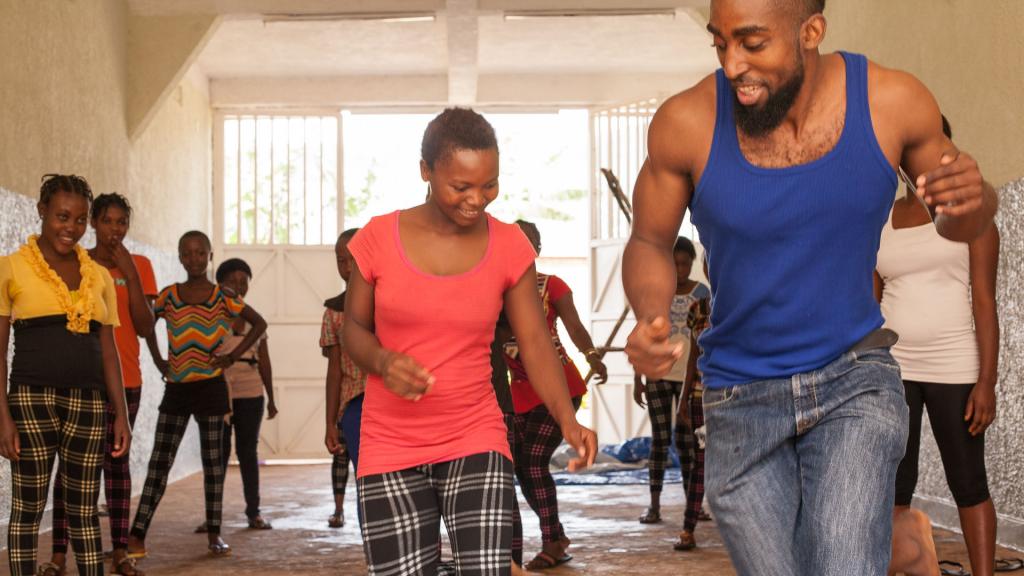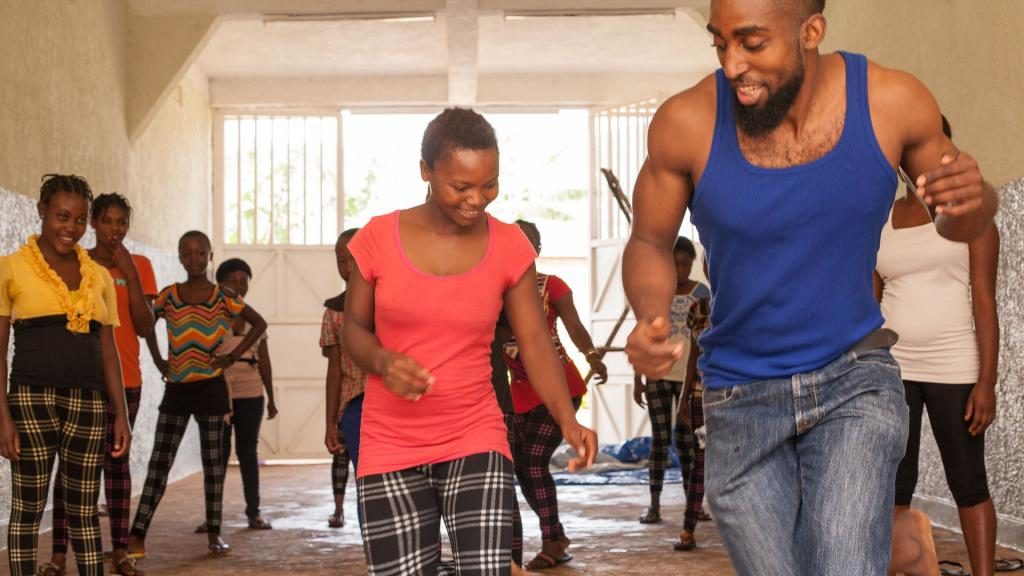French-Congolese choreographer and dancer Bolewa Sabourin is the force behind Re-Creation, a project that uses dance to provide therapeutic support to female victims of rape and sexual assault in the Kivu region of eastern DRC.
Born to a Congolese father who was the dance teacher of his French mother, 33-year-old Bolewa Sabourin was destined to dance. In his autobiography The rage to live, he details a tumultuous childhood of dropping out of school and eventual life commitments that led him to espouse the philosophy that “dance is a tool of resilience, a means to regain power over oneself,” reports TV5Monde.

In 2008, with his friend William Njaboum, he created the association Loba with the aim of using dance in service of others. In their early years the duo organised dance classes and events in the neighbourhood to bring people together. However, they were both still very young at the time and eventually took a break in favour of other pursuits.
After pursuing a Master’s degree in political science at the Sorbonne, Sabourin and his partner regrouped. “Our previous experiences fed us. We wanted to relaunch Loba in 2015 with what we had learned.”
In 2016, he attended a conference by Dr Denis Mukwege, the Congolese gynaecologist who has helped more than 50 000 victims of abuse. The event would change Sabourin’s life. The doctor told the harrowing stories of the many victims of sexual violence in Kivu. Sabourin immediately and actively wanted to help. “For me, signing a petition does not show a deep commitment. It’s doing things backwards. We are either physical and determined action, or nothing.”
He also laments the fact that the horrors of the Congo and the work of Dr Mukwege is not common knowledge. “I had vaguely heard of his work before. I had seen the movie (The Man Who Mends Women: The Wrath of Hippocrates) but I did not have more info than that. This also struck me: If you were not part of a certain intelligentsia, you would not know about his commitment. That’s what pushed us into action. We wanted to make these issues known, so that it would reach other people. The doctor does a great job but it is up to us, younger people, who have other means of communication, other modes of action, to support a gentleman who has been working on these issues for over 20 years.”
A rage for life
These were the motivations that fuelled the birth of Re-Creation. Although Dr Mukwege had received help from numerous global psychiatrists and psychologists, Sabourin explained that these “Western methods” did not yield the desired results.
“Such violence and horror, I think for some it was unimaginable. We Franco-Congolese are especially aware of death. We all lost people, loved ones. We are all aware of violence. That’s why so many of us are living in exile.”
For Sabourin, dance is a transmission, a reason, and, above all, “a rage for life” – like the title of his 2018 autobiography. It made sense that he sought to bring his knowledge of dance and understanding of Congolese culture to help remedy the situation, instead of following more “Western” solutions. “By dancing, by singing, the women manage to free themselves, to give themselves up. It makes a difference.”
It is a reciprocal activity, he says: “Giving my dance classes here gives me such adrenaline, it’s like a drug. I see what it brings to others and the progress they make. 99.9% of the people who attend are women, all different in age, morphology, origin, carrying different traumas. They are together during a class, they shed a weight and they rebuild.”
Re-Creation has evolved: “Discussions with the therapists nourished my action. I adapted my workshops based on that.”
To ensure that they were indeed making a long-term, tangible impact, Sabourin and his partner decided to develop a method where a dancer and a psychologist or psychotherapist would work in pairs, thereby feeding into each other for optimal success.
Re-appropriation and weapons of war
For Sabourin, dance offers a woman who has experienced violence a way to fight against male domination. “The body has always been the tool of patriarchal domination, par excellence, wherever one is in the world. It’s always gone through the body. We made domination seem natural by talking about ‘the strong sex’, because men have muscles and testosterone, and ‘the weak sex’ when we talk about women, or even ‘sub-men’.”
He goes on to detail how various mutilation practices and inhibiting social norms have also been means of maintaining this dominance: “The more women found ways to prove their humanity, the more we, the men, found physical ways to compel them to remain under this domination. So, for us, the re-appropriation of the body is an essential step in the re-appropriation of women’s history.”
Although the work of Dr Mukwege and the Re-Creation project are valuable in helping women recover physically and psychologically from sexual violence, neither would be necessary if sexual warfare – like chemical warfare – was banned.
“It’s a proven fact. There is a specificity, a real calculation, a reflection on the question that is behind such attacks on women. To rape a woman is to destroy her but it is also to destroy her family environment, the reproductive system. We would like there to be a UN resolution, supra national, that bans the sexual weapon, just as the chemical weapon was banned. It will not prevent everyone from using it but at least there will be a recognition, a legal framework, that will facilitate the fight against this act.”

